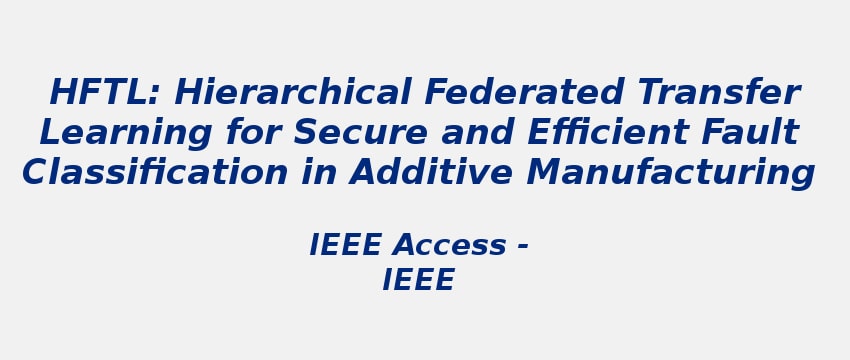Research Area: Machine Learning
The technology advancement is supported by additive manufacturing industries, especially 3D printing companies, that enable fast object prototyping and development in Industry 4.0. As 3D printed products are highly adopted in various fields, the final printed product must fulfill precise requirements without any defects. Therefore, an efficient framework that simultaneously learns and detects faults during the printing process is required. Unfortunately, most state-of-the-art studies utilize a centralized approach, which is inefficient for continuous model updates. This article presents a hierarchical federated transfer learning (HFTL) framework that employs edge, fog, and cloud concepts to enable an efficient model updating mechanism. The proposed HFTL uses a well-known DL model with a new classifier to significantly reduce the distributed training process while providing high detection and classification performance. Additionally, the fog server comprehensively exploits the data collection from several edge servers and performs local training. The extensive simulation results indicate that the performance of the proposed HFTL is more efficient, with 24% faster training time, effectively detects flaws in 3D printing products with 45% accuracy, and has a 59% F1-score improvement in non-IID data distribution compared to traditional FL architecture.
Keywords:
Author(s) Name: Made Adi Paramartha Putra, Syifa Maliah Rachmawati, Mideth Abisado, Gabriel Avelino Sampedro
Journal name: IEEE Access
Conferrence name:
Publisher name: IEEE
DOI: 10.1109/ACCESS.2023.3280471
Volume Information: Volume 11, Pages 54795-54807, (2023)
Paper Link: https://ieeexplore.ieee.org/document/10138167
